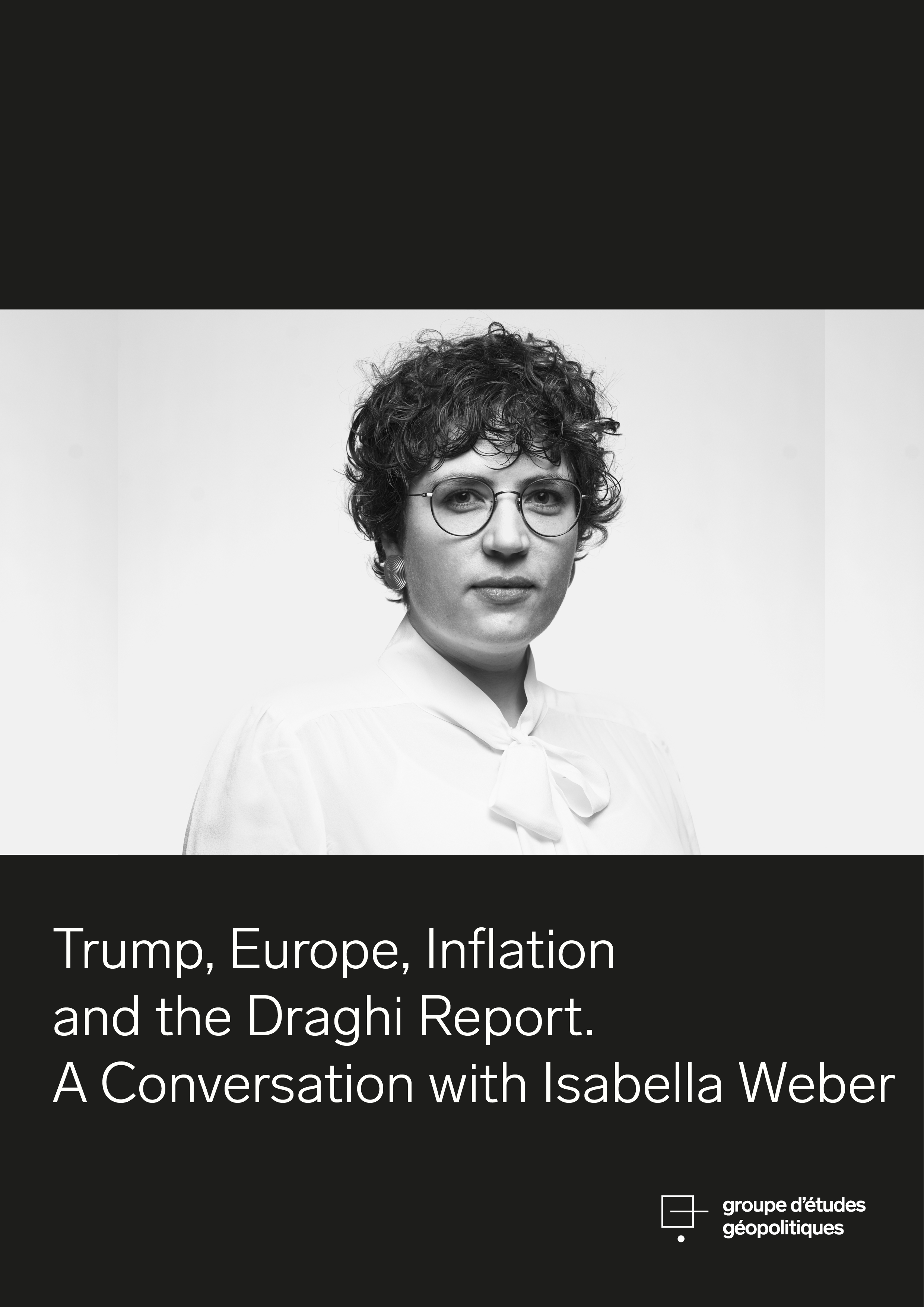Trump, Europe, Inflation and the Draghi Report. A Conversation with Isabella Weber
Shahin Vallée
Senior research fellow in DGAP's Center for Geopolitics, Geoeconomics, and Technology13/11/2024

Trump, Europe, Inflation and the Draghi Report. A Conversation with Isabella Weber
Shahin Vallée
Senior research fellow in DGAP's Center for Geopolitics, Geoeconomics, and Technology13/11/2024

 Voir tous les articles
Voir tous les articles
Trump, Europe, Inflation and the Draghi Report. A Conversation with Isabella Weber
There seems to be a significant move in the Draghi report, on the one hand, in favour of industrial policy, without necessarily being very clear about what that means. On the other hand, there’s a sort of return to a more classical view of competition policy. To what extent are these two consistent?
For me, the return to a more classical view of competition policy comes from a kind of lack of system thinking in the Draghi report. For example, he talks so much about energy prices, but he never mentions inflation. The only time he does talk about inflation is when he says we can have this level of fiscal spending of 4.5 to 5% of GDP without running into macroeconomic capacity constraints. It is a very classic macroeconomic understanding of capacity utilisation as a constraint on inflation.
Wartime economies with a high level of investment, can run into bottlenecks in specific sectors long before they have a capacity utilisation problem, and these bottlenecks can drive up prices in ways that can be inflationary. A full-on war on climate change can run into the same issue. So, if we invest on the scale Draghi rightly proposes, the problem of bottlenecks will be back, especially in a world of deglobalization.
We live in a world of overlapping emergencies. There will be more shocks. There’s a clear case for reducing the cost of capital as Draghi rightly points out both from a green transition and a competitiveness perspective. But if we have to rely on raising interest rates every time there’s a price shock, then we are actually relying on an inflation policy, which is making the cost of capital more expensive. And it is likely that there will be inflationary bouts.
There’s a lot more room for manoeuvre and a lot of the ingredients are already on the table, as I tried to illustrate with the example of energy prices. Making energy prices more stable because of competition is ultimately also making energy prices more stable in terms of inflation risks.
There is a lot of scope for developing safeguards against inflation in the way the EU conducts industrial policy, so that it avoids inflationary episodes and therefore avoids interest rate hikes, which can be a big factor in undermining competitiveness.
China has not had inflation. While the rest of the world has been hiking interest rates aggressively, China has actually been lowering its rates. They face a whole set of different economic policy challenges, but still in terms of the competitiveness of the cost of capital, this is an opposite movement.
A more systemic approach could avoid the competitiveness traps that this siloed approach, which I see in the Draghi report, risks.
One of the most visible aspects of the Draghi report, partly because it has been criticised in Germany, was his plea for a major investment spree financed at the European level. What do you think about the fiscal dimension of the Draghi report? How likely is it that we will see this kind of European fiscal mutualisation?
I agree with his proposition. This has been perennial ever since the euro crisis. Not having that kind of fiscal space on the European level is one of the reasons why we see these dents in European growth compared to other countries in these moments of global crisis.
In terms of the political dynamics, my assessment is that Germany will not move at the European level before it moves domestically. We have seen it very clearly during the energy crisis. Germany eventually implemented the energy price brakes domestically, only after that did they also agreed to a European gas price cap. I think the exact same kind of dynamic is likely to happen with the fiscal rules. Germany is the worst performing major economy in a two-year recession. You don’t have to be a heterodox economist to think that in such a situation you don’t need the debt brake, you need fiscal spending on a large scale.
During the euro crisis, there was an argument that Germany somehow benefited from this fiscal tightness and that it came out as the winner by imposing its fiscal conservatism on the rest of the EU. I’m not necessarily saying that this was the case, but there was an argument to be made that had some merit. But now Germany is imposing the same logic on its own economy in a way that is really detrimental to its competitiveness, to democratic stability and to the necessary renewal of its economic model.
As long as Germany is willing to do this to its own economy, despite the enormous costs, it is unlikely that it will support a common fiscal capacity at the European level in order not to impose the same kind of costs on other European countries.
The necessary condition is for Germany to domestically reform the debt brake. Hopefully it will then finally come around to also do a meaningful reform on the European level that gives us the kind of fiscal space that we need.
citer l'article
Shahin Vallée, Trump, Europe, Inflation and the Draghi Report. A Conversation with Isabella Weber, Nov 2024,




